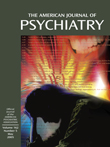Irritability and Depression
To the Editor: Manics are irritable. Some depressives are irritable. Ergo, some depressives are bipolar. Not necessarily true. This topic was discussed in a recent article by Giovanni B. Cassano, M.D., et al. (1).
DSM-III and DSM-IV turned diagnoses into symptom checklists. This may increase the reliability of diagnosis, but it does not follow that the symptom necessarily is associated with the diagnosis. Many diagnoses are associated with irritability or distractibility, and even more are associated with impaired concentration or insomnia. These symptoms may occur in mania, but they are so nonspecific that they cannot be said to imply mania.
Much of medicine used to be like psychiatry, i.e., without definitive diagnostic tests. Imagine diagnosing a myocardial infarction without ECGs or enzymes; a constellation of symptoms, including chest pain, diaphoresis, dizziness, irregular heartbeat, etc., suggest a myocardial infarction, but none of these symptoms alone would indicate a myocardial infarction. All occur much more frequently in other conditions.
An unfortunate (and unintended) legacy of DSM-III and DSM-IV is the attribution of diagnostic significance to nonspecific symptoms that are only diagnostically meaningful when they are part of a constellation of symptoms or a syndrome. This has led to agitated, irritable depressives being called bipolar (often “mixed”) and to the overdiagnosis of bipolar disorder (analogous to the overdiagnosis of schizophrenia prior to 1970).
Undeniably, some apparent unipolar depressives will turn out to be bipolar. However, the majority of unipolar depressives will never become manic or hypomanic, even with antidepressants, and the presence of irritability, agitation, and other nonspecific symptoms associated with mania does not make these patients even a little bit bipolar.
1. Cassano GB, Rucci P, Frank E, Fagiolini A, Dell’Osso L, Shear MK, Kupfer DJ: The mood spectrum in unipolar and bipolar disorder: arguments for a unitary approach. Am J Psychiatry 2004; 161:1264–1269Link, Google Scholar



